In early 2024, Baidu launched its sixth-generation autonomous vehicle, the RT6. Their plan is to deploy 1,000 RT6 autonomous vehicles on the streets of Wuhan by the end of 2024.
However, according to CarNewsChina, self-driving electric taxis in Wuhan city (China) are causing a lot of controversy, especially when one of these cars collided with an electric cyclist last week.
Taxi drivers' income reduced by self-driving cars
In fact, this is not the first time that self-driving taxis have caused inconvenience to road users. Not only that, taxi drivers are also complaining about the risk of "losing their jobs" due to self-driving vehicles.
Notably, taxi drivers are petitioning Wuhan to restrict the use of Apollo Go taxis. Some of its 159 drivers have been laid off since April.
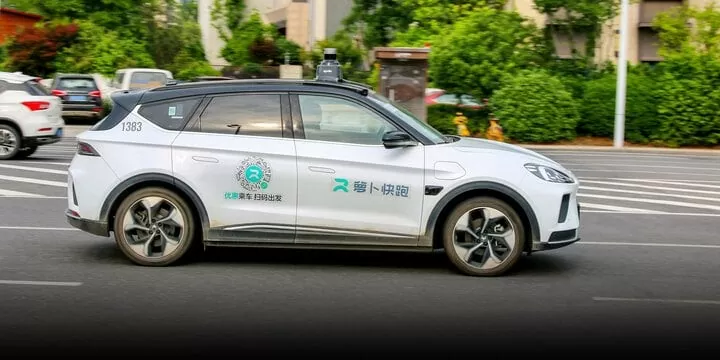 |
| Self-driving cars are taking a bite out of China's tech drivers' income. CarNewsChina |
At its peak, Apollo Go could average 20 orders per car per day. China News Weekly quoted one driver as saying that he now typically receives 16 or 17 orders per day. But two or three years ago, 20 orders per day was the norm.
Objectively, although it is possible that self-driving car services charge lower fees than regular ride-hailing services, the real problem is more likely to come from different factors. It is known that self-driving cars only account for about one percent of all taxis and ride-hailing services in Wuhan, so they cannot be the only reason for the decline in drivers' income.
Self-driving taxis are cheap but still have many unsatisfactory points
Passenger Liu Shuang, who lives in Wuhan, said she has used the self-driving car service at least ten times in a month. One of the main reasons she uses it so often is the price.
For example, on a 5km route from her home to her child's tutoring school, a Didi ride (China's equivalent of Uber) costs between 11 and 15 yuan (US$1.50 and US$2.20); however, using Apollo Go costs only 7.5 yuan (US$1.10). Even after using coupons, the figure sometimes drops to just 2.5 yuan (US$3.30).
However, she also noted that trips in self-driving cars take longer than those with human drivers. One of her usual routes would take only 6 or 7 minutes with an experienced driver, but the Apollo Go takes more than 10 minutes because they prioritize main roads with more traffic lights. She also said that riding in a car is not a good experience because the vehicles often brake suddenly because of pedestrians or other obstacles.
The danger of self-driving cars joining traffic
CarNewsChina points out that self-driving cars in Wuhan have received more than 300 complaints on the official traffic management website. Many of these complaints involve self-driving cars causing obstructions and slow responses to situations like traffic lights.
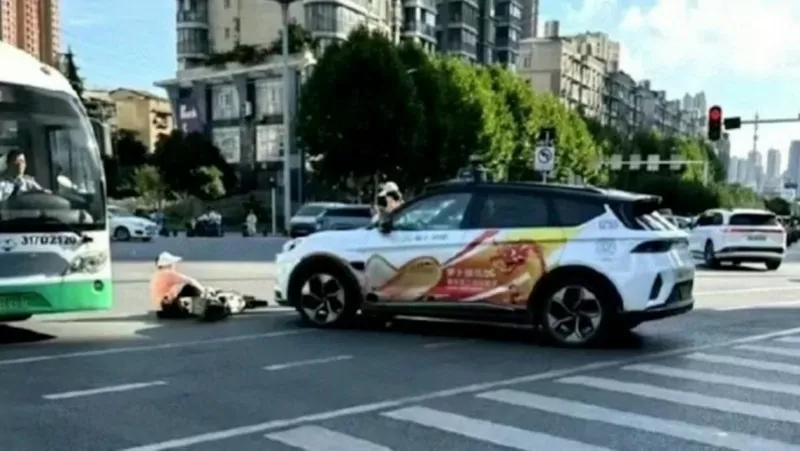 |
| A collision involving a self-driving car. Photo: CarNewsChina |
Additionally, the data shows that there are many instances where self-driving cars fail to stay in the correct lane, mainly due to interactions with other drivers in traffic.
A recent video that went viral on social media showed a self-driving taxi getting stuck because of a bag in the road that it considered an obstacle. Only after a pedestrian moved the bag did the self-driving car slowly move away.
Strong development potential of self-driving cars
The number of self-driving cars operating on Wuhan's streets without drivers increased by a total of 70% in April, and is expected to increase to 100% by the end of this year.
The lack of a safety driver requirement is seen by CarNewsChina as a significant cost-saving measure for the Apollo Go. Furthermore, the taxi company Baidu, which operates the line, claims that the price of the sixth-generation autonomous vehicle has been reduced compared to previous generations.
At the launch of the RT6 self-driving car, Baidu showed the cost of a car at 204,600 yuan ($28,350); compared to 480,000 yuan ($66,100) for the fifth generation.
Currently, Apollo Go shares that it is subsidizing rides and taking a loss, but the company expects to break even next year.
Chinese media reported that Apollo Go operates over 3,000 square kilometers and 3,378.73 kilometers of real-world roads, an area home to 7.7 million people in Wuhan. Moreover, the brand also plans to expand to other areas in the country of a billion people. Notably, Baidu has previously said that it plans to cover 100 cities with autonomous electric vehicles by the end of the decade.
Source: https://congthuong.vn/trung-quoc-tai-xe-taxi-so-mat-nghe-boi-o-to-tu-lai-333637.html


![[Photo] Prime Minister Pham Minh Chinh starts construction of vital highway through Thai Binh and Nam Dinh](https://vphoto.vietnam.vn/thumb/1200x675/vietnam/resource/IMAGE/2025/5/12/52d98584ccea4c8dbf7c7f7484433af5)

![[Photo] Prime Minister Pham Minh Chinh receives Swedish Minister of International Development Cooperation and Foreign Trade](https://vphoto.vietnam.vn/thumb/1200x675/vietnam/resource/IMAGE/2025/5/12/ae50d0bb57584fd1bbe1cd77d9ad6d97)
![[Photo] Prime Minister Pham Minh Chinh works with the Standing Committee of Thai Binh Provincial Party Committee](https://vphoto.vietnam.vn/thumb/1200x675/vietnam/resource/IMAGE/2025/5/12/f514ab990c544e05a446f77bba59c7d1)








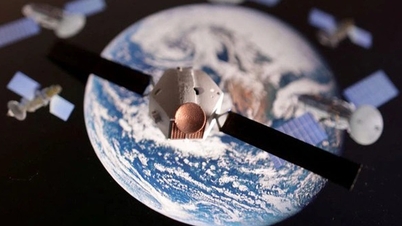





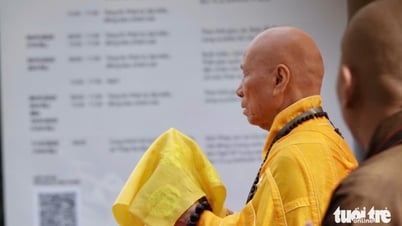






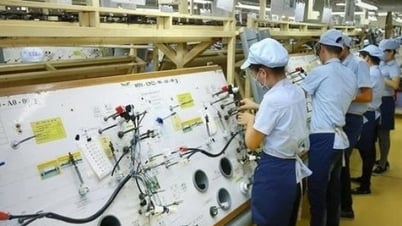







































































Comment (0)